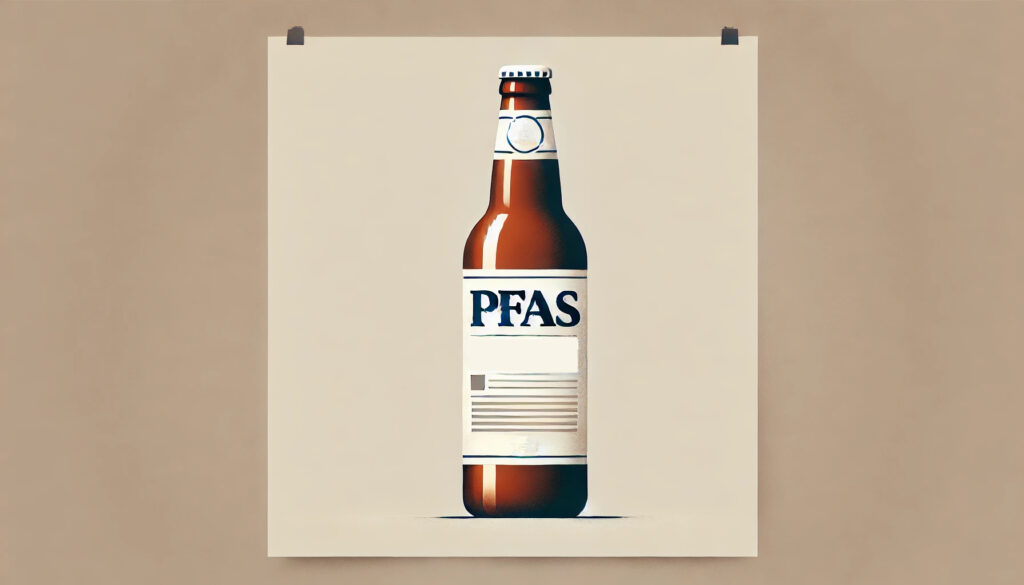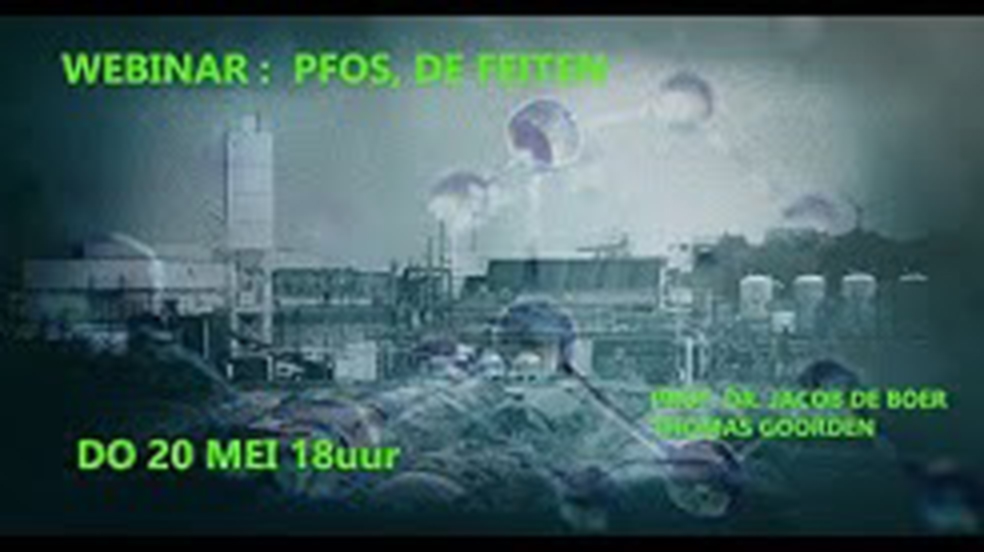28.01.2025 | Grondrecht
Pfas in ons bier??? Grondrecht veroordeelt de onzichtbare vergiftiging van ons drinkwater
Wat als we u vertellen dat uw pintje misschien niet zo zuiver is als u denkt? Grondrecht vzw, het Burgercollectief dat strijdt tegen toxische PFAS-vervuiling, lanceert een schokkende bewustwordingscampagne: een speciaal gebrouwen bier met zogenaamd ‘lokaal grondwater’ uit Zwijndrecht – een gebied dat al jarenlang wordt geplaagd door gevaarlijke PFAS-vervuiling. Op het etiket? Een confronterende waarheid: “Dit bier bevat hoge concentraties PFAS”. Een schok voor de consument, maar vooral een bittere realiteit voor onze leefomgeving.
Waarom deze actie?
PFAS, oftewel de ‘forever chemicals’, zitten overal: in ons water, onze voeding, ons bloed. Zelfs in ons bier, zeker als we ons lokale grondwater zouden gebruiken. Dat kunnen we niet. Het is te giftig. Met deze actie willen we de absurditeit van deze realiteit blootleggen. Hoe is het mogelijk dat een verfrissend pintje symbool staat voor een diepgaand milieuschandaal? Het antwoord is simpel: omdat we in Europa nog steeds toestaan dat PFAS geproduceerd en verspreid wordt. Dit moet stoppen.
Een wake-up call in een flesje bier.
We laten het hier niet bij. We zullen dit bier gratis uitdelen aan werknemers van de 3M-fabriek vandaag om 13h30 – het epicentrum van deze vervuiling in Zwijndrecht. Daarnaast nodigen we beleidsmakers, journalisten, milieuactivisten en betrokken burgers uit om zelf te proeven van de impact van jarenlange vervuiling. Letterlijk en figuurlijk.
PFAS-vrije toekomst: Europese ban NU!
Onze eis is helder: een onmiddellijke Europese ban op de productie en het gebruik van PFAS. Er zijn veilige alternatieven, en we moeten ze nu omarmen voordat het te laat is. Want als zelfs ons bier niet meer veilig zou zijn, wat blijft er dan nog over?
Deze actie is onderdeel van de ‘Toxic Free Europe Now!’-actieweek van het European Environmental Bureau (EEB) en We Move Europe. Dit initiatief vertegenwoordigt de strijd van talloze Europese hotspots waar PFAS-vervuiling een enorme impact heeft op de lokale bevolking. Dit probleem stopt niet bij regionale grenzen – het vereist een gezamenlijke Europese aanpak. Zonder ingrijpen riskeren we dat al het water en de bodem in Europa blijvend giftig wordt. Samen met milieuorganisaties uit heel Europa zetten we druk op beleidsmakers om de productie van PFAS stop te zetten en werk te maken van een veilige sanering van de al bestaande vervuiling. We kunnen niet langer wegkijken, de tijd om te handelen is nu.
Deze actieweek is een direct gevolg van de onthullingen van Le Monde en partners op 14 januari 2025. Uit dit diepgaand onderzoek blijkt hoe astronomisch hoog de kosten zouden zijn om PFAS uit ons milieu op te ruimen. Tegelijkertijd onthult het rapport hoe het wetsvoorstel voor een Europees verbod op PFAS zwaar onder vuur ligt en systematisch wordt vertraagd en afgezwakt door de immense lobbydruk van de chemische industrie. Grote bedrijven spenderen gigantische budgetten om regelgeving tegen te werken en hun winst veilig te stellen, terwijl burgers en ecosystemen de prijs betalen. Daarom hebben EEB en WeMove Europe samen met lokale NGO’s in heel Europa deze actieweek georganiseerd. Onder de slogan “TOXIC FREE EUROPE NOW” roepen we op tot actie en bewustwording. Als Grondrecht vzw vinden we het van cruciaal belang om Vlaanderen – en vooral Zwijndrecht – te mobiliseren en dit Europese project kracht bij te zetten. We zijn trots op de talloze acties die in andere Europese landen worden georganiseerd en bundelen samen onze krachten voor een PFAS-vrije toekomst.
Naast onze lokale acties zorgen we ervoor dat onze boodschap ook in Brussel gehoord wordt. Ons ‘PFAS-bier’ wordt niet alleen uitgedeeld aan industrie en betrokken stakeholders, maar ook aan verschillende overheden en leden van het Europees Parlement. Het European Environmental Bureau (EEB) speelt hierin een sleutelrol door onze campagne zichtbaar te maken in de Europese hoofdstad. Zo tonen we op alle niveaus – van lokaal tot Europees – hoe urgent de PFAS-crisis is en dat de enige oplossing een totaalverbod is. Het is tijd dat beleidsmakers en politici luisteren en handelen in het belang van onze gezondheid en ons milieu.e invoering van de strengere regels voor de behandeling van PFAS-vervuilde grond op Vlaamse werven wordt opnieuw uitgesteld.



